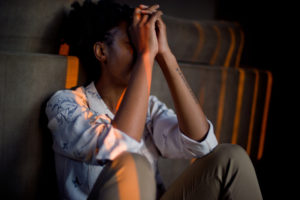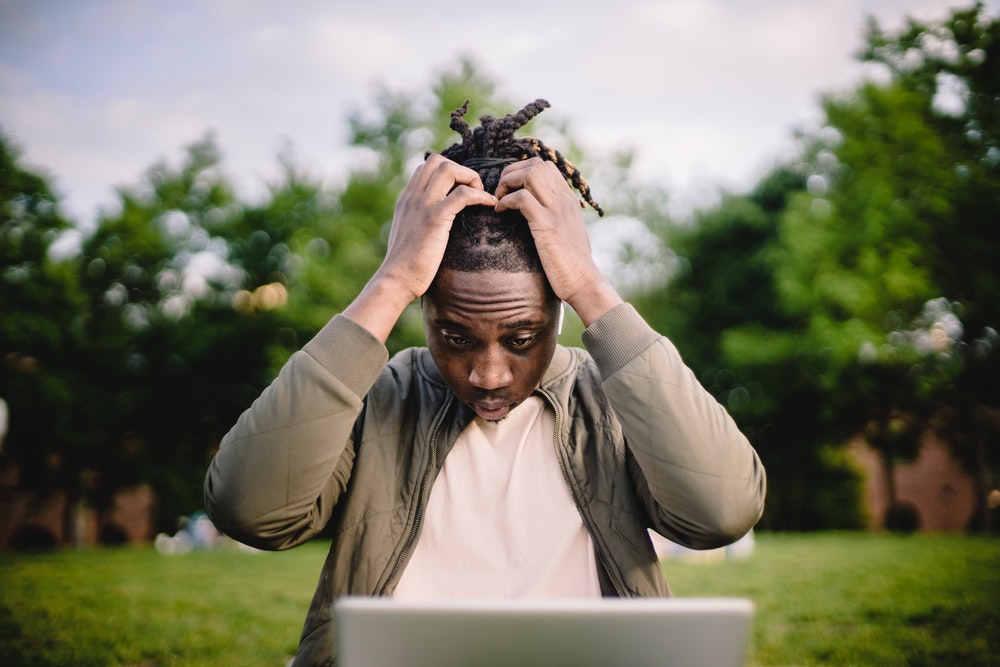This year has been one for the records. A lot has transpired. Unfortunately, a lot of sorrow has swept through this world. It has not been easy. But believe me when I tell you: God is about to do some new and great things for His people. As I sought the Lord on what to write, He instructed me to ask you a question. He told me, “Ask them, where is your trust?”
Of course, a question like this is not only posed to you but to me as well. Jesus told us that we would have tribulation in this world (John 16:33). So, although today’s happenings may alarm us, the Word of our Lord should reestablish our faith.
Defining Trust
 As I checked my own trust, I began by defining faith. According to Google, faith is defined as a strong belief in God. Trust is defined as confidence or reliability. When I read this, I summed it up like this: Belief is the bare minimum in which we acknowledge God’s existence. Faith is what personalizes the belief we have by making God your God. Finally, trust is the confidence that God, who we have faith in, is reliable to be everything He said He is.
As I checked my own trust, I began by defining faith. According to Google, faith is defined as a strong belief in God. Trust is defined as confidence or reliability. When I read this, I summed it up like this: Belief is the bare minimum in which we acknowledge God’s existence. Faith is what personalizes the belief we have by making God your God. Finally, trust is the confidence that God, who we have faith in, is reliable to be everything He said He is.
The Bible says, “It is better to trust in the Lord than to put confidence in man” (Psalm 118:8). As we are in the middle of a global pandemic, we see the unreliability of man. Their words change daily. Their facts change daily. We cannot know whether the things said are true. The people of God must keep their eyes and ears toward heaven and follow Jesus. In Christ, there is no deception.
3 Confirmations of Your Trust in God
The thing I love about God’s design is that everything done in the spirit (or unseen) yields tangible fruit. So, when we put our trust in God, there is evidence to follow.
1. Trust yields Peace.
Isaiah 26:3 says, “Thou wilt keep him in perfect peace, whose mind is stayed on thee: because he trusteth in thee.” To obtain that peace that passes understanding, we must put our trust in the Lord. This peace will keep your mind. So, while others are panicking, the people of God, who have put their trust in God, will rest in the arms of the Almighty, knowing that all things are in His control. Fear cannot have dominion over those who trust God.
2. Trust yields Obedience.
I am reminded of the three Hebrew boys in Daniel 3. These men trusted God even in the face of death. They refused to worship or submit themselves to an idol. Their trust was evidential in their obedience to God. They knew God could save them, but even if He chose not to, they trusted God not only in this life but also after. That is both powerful and sobering. Are you willing to trust God even if it cost you your life?
3. Trust yields Rejection.
When you trust God, people will call you foolish, unwise, and much more. The Bible says God will take the foolish things of this world to confound the wise and take the weak things of this world to shame the strong (1 Corinthians 1:27).
Our entire playbook is filled with examples of people who trusted God in times of war, famine, pestilence, tribulation, and instruction. Gideon is an excellent example of that. If Gideon were a part of the church today, church people would call him unwise for taking 300 men to a battle against thousands. But was the instruction of the Lord, and the Lord confirmed His Word.
There is no law against trusting God. Indeed, we are in a pandemic, but God has not given his people a spirit of fear. Do what you feel you have to do, but do not put your trust in man, a mask, or medicine. It is God who protects, and it is God who heals.
So, what’s the play call?
There is a lot of division in the Body concerning trusting God. Many disagree with the stance certain saints are making. But I want to point something out, Daniel and the three Hebrew boys were not the only Israelite exiles in Babylon at the time of Nebuchadnezzar; they were the ones that chose not to bow to the golden image. God used their stance and judgment to change Nebuchadnezzar’s heart, where he became a worshipper of Daniel’s God.
God says, “who hath believed our report?” (Isaiah 53:1). Will the Body of Christ remain trusting science, men, statistics, and continue to restrict God’s worship and glory? Will the church remain online forever? Do we serve a God of all power who heals the incurable?
The time is now where God is allowing the things of this world to try our faith. The Bible says that the Word of God is tried. We must not only love or obey God in word but also in deed (1 John 3:18).
So again, I ask you, where is your trust?





I think even after this pandemic might have ceased and covid-19 is brought under control, the Church should and must remain online as it has proven to be a powerful tool of evangelism. Praise Yeshua!